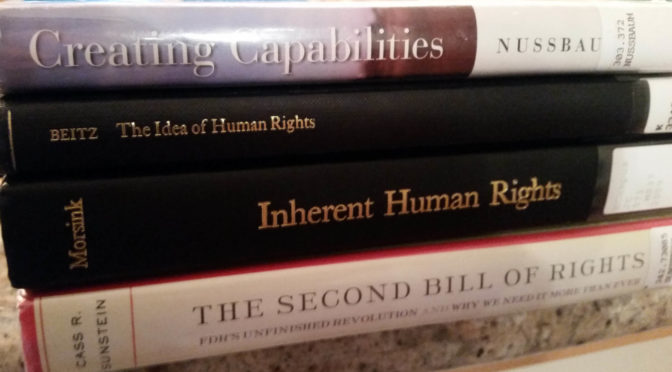Category: Philosophy
-

Human Rights Reading: Nussbaum, Sunstein, Morsink, Beitz
A couple of experiences related to human rights recently got me thinking about what the basis is for their existence, and how to think about them as individuals, as political constructs, and his philosophical constructs. I hope to put together an essay that actually makes sense on that topic, but in the meantime here’s my…